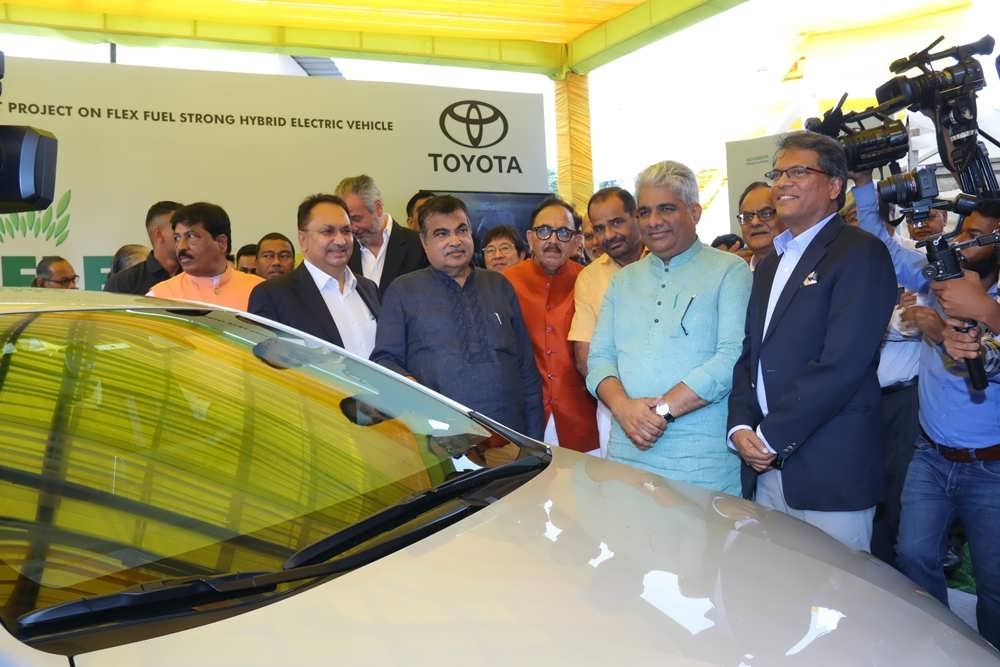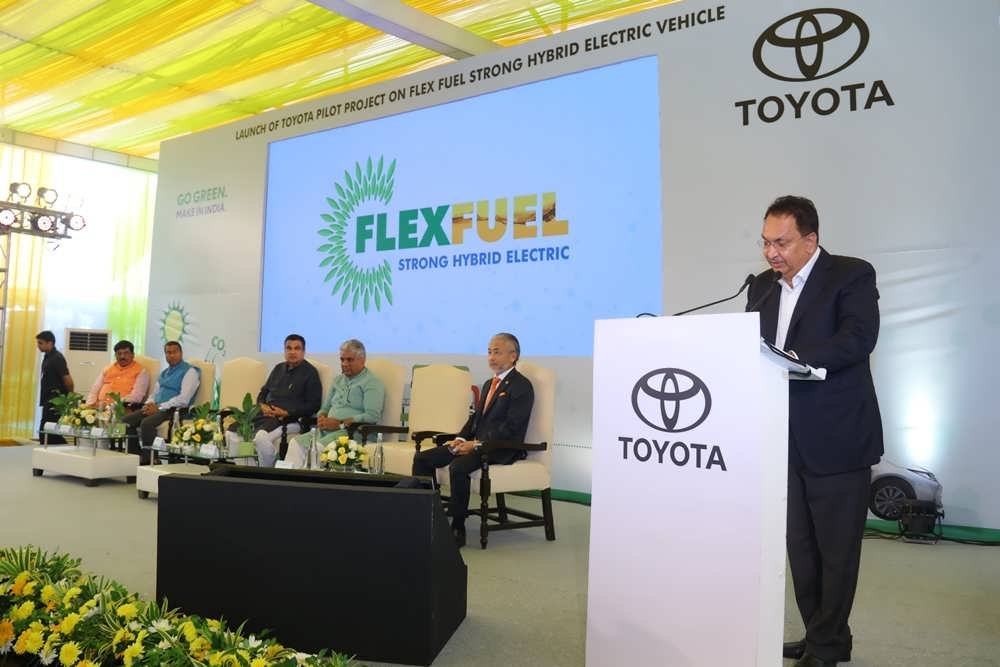Thread Starter
#1
Toyota's first car with flex-fuel technology will be unveiled by Nitin Gadkari on September 28. The Minister of Transport and Highway made the announcement while speaking on the occasion of the 62nd Automobile Component Manufacturers Association (ACMA) Annual session. The minister further confirmed that he will launch the car in Delhi.
The minister’s call for flex-fuel vehicles isn’t new and the recent announcement confirms his commitment to the cause. Not much information about the upcoming model has been revealed, and we are yet to confirm which Toyota model will get this technology. Gadkari has earlier urged carmakers to consider flex-fuel technology too, and with the upcoming car it will country's pilot project.
Flex-fuel is short for flexible fuel. It is a combination of petrol and ethanol or methanol, which is regarded as an alternative to the current liquid gold that powers most vehicles. Methanol or Ethanol are procured sustainably from organic products like sugarcane and corn. Coupled with the fact that these derivatives burn much more efficiently than petrol, they are considered cleaner for the environment. Because of this quality, many European countries like Germany and France are switching to flex-fuel engines. Countries like Brazil are also making the transition.
Also for a country like ours, which imports most of the petrol and diesel from other countries, it becomes a much better proposition to mix ethanol with petrol.
And compared to regular engines which burns only on one type of fuels, flex-fuels can take up to 83% of ethanol mix with petrol. This not just results in significant reduction of India’s carbon footprint, it will also boost the local economy since ethanol can be produced locally easily.
It should also be noted here, that regular engines can also be tweaked to run on flex-fuel. So, flex-fuels are not just clean for the environment but will also be cost-effective.
Timesnownews
Flex-fuel is short for flexible fuel. It is a combination of petrol and ethanol or methanol, which is regarded as an alternative to the current liquid gold that powers most vehicles. Methanol or Ethanol are procured sustainably from organic products like sugarcane and corn. Coupled with the fact that these derivatives burn much more efficiently than petrol, they are considered cleaner for the environment. Because of this quality, many European countries like Germany and France are switching to flex-fuel engines. Countries like Brazil are also making the transition.
Also for a country like ours, which imports most of the petrol and diesel from other countries, it becomes a much better proposition to mix ethanol with petrol.
And compared to regular engines which burns only on one type of fuels, flex-fuels can take up to 83% of ethanol mix with petrol. This not just results in significant reduction of India’s carbon footprint, it will also boost the local economy since ethanol can be produced locally easily.
It should also be noted here, that regular engines can also be tweaked to run on flex-fuel. So, flex-fuels are not just clean for the environment but will also be cost-effective.
Timesnownews



